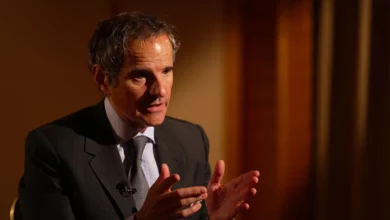Minister of Civil Aviation Ahmed Shafiq said the Egyptian-Iranian flight resumption agreement is commercial–not political–in nature and represents only a general framework.
Flights may not immediately begin, added Shafiq, who said specific flight schedules have yet to be agreed upon.
During a Monday visit to Borg al-Arab in Alexandria and Cairo International Airport, Shafiq said that so far no companies have offered to run flights. A private company has been set up to organize flights but has yet to purchase a fleet, according to Shafiq.
Shafiq also dismissed international opposition to the agreement. That sentiment was echoed by the head of the Iranian Interests Office in Cairo, Mojitaba Amani, in a statement to the London-based newspaper Al-Sharq Al-Awsat.
Responding to allegations that the ministry is entrusting flight operations to a businessman who previously went bankrupt while running another flight company, Shafiq said the two enterprises are mutually exclusive. The company's ability to comply with safety and quality standards is the priority, he added.
Shafiq said studies are underway to enable the 6th of October Airport to receive international flights–with the intention of serving western Cairo–along with Cairo International Airport.
Amani said the agreement adds to recent positive developments in Egyptian-Iranian relations. Egypt, however, is demanding the extradition of some of its citizens who previously fled to Iran as a precondition for rapprochement.
Amani said the two countries need to improve their relations in order to face future challenges.
Asked about the possibility of Egypt importing Iranian wheat, Amani said Iran has achieved wheat self-sufficiency and welcomes the export of its expertise to Egypt and other Islamic countries.
Amani also expressed Iranian willingness to provide Egypt with technical assistance for its nuclear project. He said Tehran believes peaceful nuclear technology should not be the monopoly of so-called major world powers.
Translated from the Arabic Edition.




